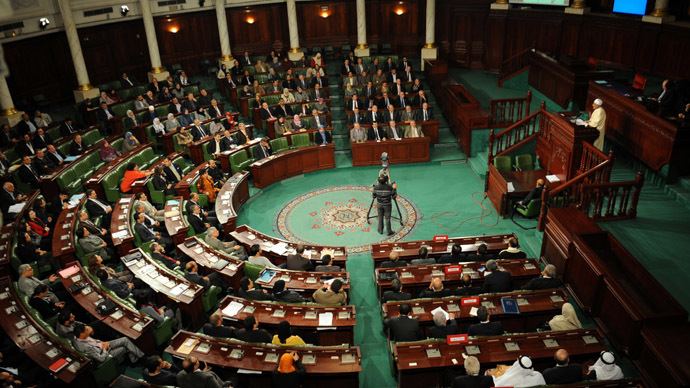Cairo – Libyan Speaker’s Advisor Issa Abdul-Majid said on Monday that he resigned from his post while declining to explain the reasons behind his decision. Abdul-Majid noted that several obstacles were preventing parliament to convene in order to hold a vote of confidence on the Cabinet.
In an interview with Asharq al-Awsat newspaper, the Libyan official said that the current government was “born dead,” noting that many demonstrations were being held against it in different cities across the country. He added, however, that Parliament could not convene over the past six months due to lack of constitutional quorum.
The Libyan official said that only 82 deputies out of 200 attended the session held last Monday, while less than 40 deputies showed up in parliament on the next day. He also warned against parliament’s failure to assume its role, stressing that it was impossible to elect a new parliament in the wake of security chaos prevailing over the country.
Asked on the reason behind the majority of deputies’ abstention to attend the sessions, Abdul-Majid said that a number of deputies had personal interests, while others were residing in Tripoli, Egypt and Tunisia.
The Libyan official accused U.N. Special Envoy Martin Kobler of stirring divisions inside the parliament. He said that he hoped the speaker would submit an official memorandum to the United Nations, to ask for Kobler’s withdrawal from his mission in Libya.
Abdul-Majid went on to say that his country will be doomed if parliament fails to assume its responsibilities. He added that the council of deputies was the only legitimate institution in the country.
“At present, new parliamentary elections cannot be held due to the security situation and the spread of extremists groups and ISIS militants in many areas,” he said.
Abdul-Majid also said that if parliament fails, Libya will become an occupied state that is controlled by foreign forces. He noted that the core of the Libyan crisis lies in the U.S.-European conflict.
He regretted that some Arab countries do not want to see stability and economic recovery in the war-torn country.
The solution, according to the Libyan official, is to remove the U.N. envoy from his post, and allow the African Union and the Arab League to mediate between the different parties. He stressed that the U.N. should only assume the role of an observer and refrain from interfering in Libya’s internal affairs.
Abdul-Majid called on Arab League Secretary General Ahmed Abul-Ghait to work on the Libyan file.
